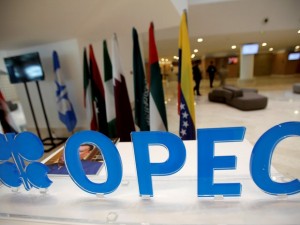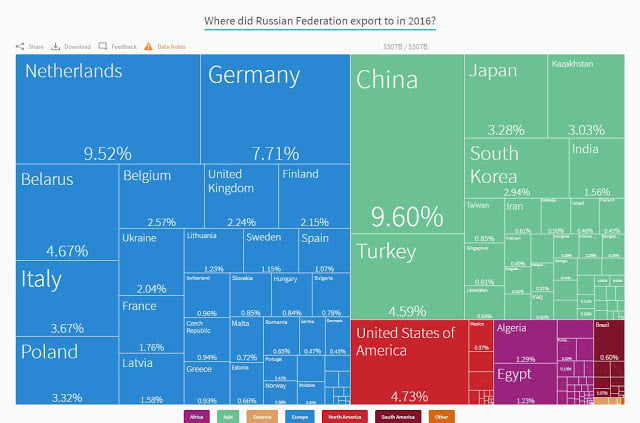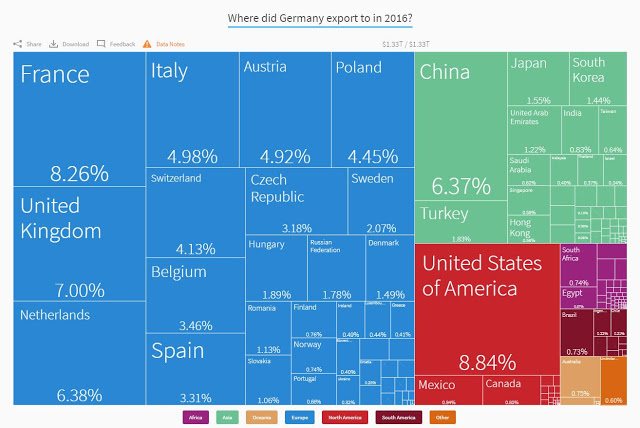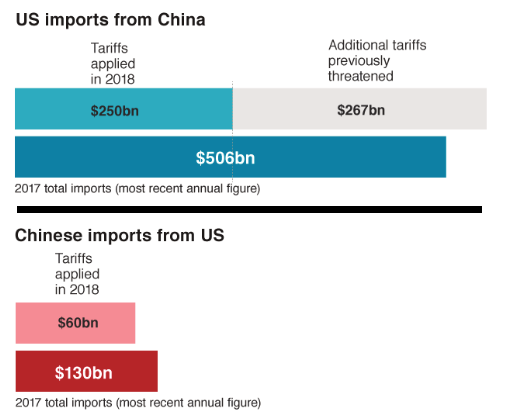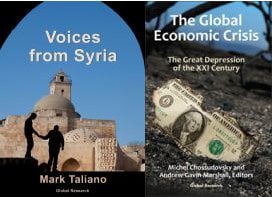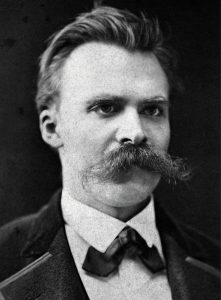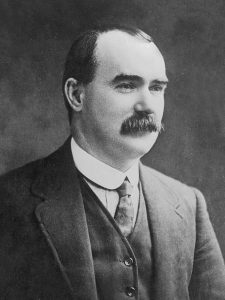On Tuesday, February 5, as the government of Emmanuel Macron pushed harsh repressive laws against demonstrators through the National Assembly, the Yellow Vests joined with France’s unions for the first time in a day-long, nation-wide “General Strike.”
At the very moment when in Paris the lower house was voting to implement Macron’s proposed laws designed to suppress public demonstrations (a legal right protected in both the French Constitution and the UN Human Rights Declaration), tens of thousands of their constituents were out in the streets all over the country demonstrating and striking against Macron’s authoritarian, neoliberal government. The demonstrators’ demands ranged from better salaries and retirement benefits, restoration of public services, equitable tax codes, an end to police brutality, and banning the use of “flash-balls” on demonstrators, to Macron’s resignation and the instauration of participatory democracy.
Deaf to the angry people’s legitimate grievances, unwilling to deal with them, Macron has given himself no other choice than to legislate new repressive legal restrictions to suppress their continued free expression. This resort to open repression can only serve to discredit the government’s handling of a crisis largely of his own making, treating a spontaneous social movement among the 99% as if it were a terrorist or fascist conspiracy. The unpopular President’s repressive tactics will inevitably backfire on him. The French are extremely protective of their liberties, and Macron’s monarchical arrogance can only remind them of how their ancestors dealt with Louis XVI.
Moreover, the Yellow Vests, who have been a painful thorn in Macron’s side since last November, were now demonstrating together with the French labour unions, whom he thought he had tamed last Spring. This convergence came in response to a call for a one-day “General Strike” issued by the Confédération générale du travail (CGT) and Solidaires, who for the first time invited “any Yellow Vests who felt like it” to join. In the event, quite a few did feel like it, despite the CGT’s previous hostility to the Yellow Vests and despite their own fundamental suspicion of all “representative” structures, like established parties and unions (whom the Yellow Vests justifiably fear would attempt to co-opt them, speak in their name, and sell them out).
A Day of Action and Convergence
For a “first date” the one-day Strike came off very well, somewhat to the surprise of both parties. And if this tentative Red-Yellow alliance continues to solidify (and there is every indication that it will), France will likely become ungovernable and the ruling classes will be up against the wall. What might happen next is rich in possibility, for the French, with their long history of popular revolutions, have been singularly inventive in coming up with new political arrangements. For now, let us look more closely at what may, in retrospect, be an historic day.
The Strike began at exactly midnight when a rowdy crowd of 200-300 demonstrators near Paris blocked the giant Rungis produce market (which replaced Les Halles, the legendary “Belly of Paris”), cutting off food to the capital with trucks lining up on the outskirts. You can see the Yellow Vests among the Red flags of the CGT in this video from Le Parisien. They even set up a barricade. In the early hours, there were also blockages at the airport of Nantes and at the University there, at a key toll-gate near Toulouse, while in Grenoble transport was disturbed all morning.
All told there were demonstrations in at least 160 different localities, all different in size and conduct, mostly improvised by people on the spot at the last minute. There were big ones in the Channel ports Le Harvre, Rouen and Caen. In Strasbourg about 1500, in Lyon 5000 including 500 Yellow vests. In Marseille the Yellow Vest march converged with the CGT at the Stock Exchange, a shift of targets for the Yellow Vests from government to finance capital.
In Paris, instead of the usual union march through the popular quarters from the Bastille to Nation, the CGT-led strikers invaded the fancy Right Bank territory, violently contested for twelve weeks by the Yellow Vests, marching boldly up the Rue de Rivoli with its luxurious shop-windows (and construction sites with bricks lying around). They then held an impromptu rally at a major intersection, tying up traffic and baffling the police.
Here in Montpellier, as elsewhere in France, the crowd was big, but no bigger than some of the previous Saturday Yellow Vest demos – as was the case all over France. But this Tuesday it was largely a union crowd. On the other hand, after weeks of gassing peaceful protestors, the police presence was extremely discrete, and one Gendarme was filmed explaining to the Yellow Vests protestors that the Gendarmes had “nothing against them,” that his family supported the movement, explaining that they were soldiers and sworn to obey orders (the Gendarmerie being under the military). The Yellow Vests answered that they “had nothing against the Gendarmes either.” See the amazing video.
When I arrived at the gathering point, the loudspeakers of the CGT sound-truck were blaring out a long boring speech – complicated stuff concerning the Euro. No possibility of conversation, much less convergence. Next up the line came a contingent of CGT people, quite a number of whom were wearing yellow vests with bright red CGT emblems on them. This “dual” identity underscores the naturalness of the convergence of the two movements of working-class people who have nearly identical economic goals and all the same enemies. Like the Red-Yellow CGT activists, nearly every Yellow Vest has by now personalized her/his attire, inscribing slogans on them like “End of Month/End of World: Same Combat,” “Macron Resign!” “Down with Capitalism” and the very popular “Government of the People, By the People and for the People” (The French haven’t a clue they’re quoting Lincoln, an American!).
At the front of the column, after the CGT banner, were the Yellow Vests, perhaps 200 strong behind our banner and singing aloud. I was a little disappointed by the low turnout of Yellow Vests. Also that they didn’t go back and fraternize and mingle with the union folk, as one woman proposed and as I attempted, in spite of the loud recorded CGT music. At the end of the march, our Montpellier Yellow Vest had planned to hold an open-mike speakout, but that didn’t come off either. However, as comrades kept reminding me, it was an important first step, and we’ll be back. We make our road by walking.
Who Are these Yellow Vests?
Since November 17, 2018, the popular, nation-wide, self-organized Yellow Vests movement has been keeping up the pressure on the neoliberal Macron regime with daily protests at traffic circles and weekly demonstrations in dozens of cities. It is made up of average, lower middle-class French people, mostly provincials, whose lives have gotten worse under neoliberal policies. They are mostly “little people” who are struggling to make ends meet and are tired of being ignored and humiliated by France’s elites.
Last November, they began to turn off their TVs, come out of their houses, join together at traffic circles and toll booths, get to know each other, grill sausages and feel empowered, rather than isolated and helpless. They thus humanized these “noplaces” or non-places created by the automobile civilization that had stripped their villages of post-offices, bakeries and cafés, forcing them to spend two hours every workday in their cars.
The Yellow vests represent a demographic cross section of France – naturally minus the top 2% or 3%. And, unfortunately, for the moment, minus the approximately 10 per cent of France’s doubly oppressed, discriminated immigrant communities: Arabs, Berbers, Black Africans and other immigrants who do most of the dirty jobs, who are rarely seen in civil service jobs, and whose youth riots in the Banlieues (Projects) seriously challenged President Sarkozy in 2005. (Partly due to my suggestion, the Montpellier Yellow Vests are starting to reach out to the immigrant communities.)
Coming from many different backgrounds, the Yellow Vests wisely chose to put aside their political differences and party preferences, avoid pointless arguments, and focus on the struggle that unites them, each speaking for her or himself (alternating genders to maintain parity). As the weekly protests continued, the Yellow Vests were slowly refining their goals and tactics and discovering how to organize themselves while retaining their autonomy. After more than two months, on January 25-27, delegates from 75 local Yellow Vest Assemblies came together in the town of Commercy (Lorraine) for their first “Assembly of Assemblies” and wrote a democratic, egalitarian, anti-racist Declaration (discussed below) which soon achieved a consensus around the country. Thus, a functioning federation with common goals is now emerging.
Remarkably, the Yellow Vests’ rebellion has persisted week after week despite a government campaign of brutal police repression – including thousands of injuries (some serious), several deaths, a thousand arrests, and routine tear-gassing of peaceful groups. The Yellow Vests have persisted despite being constantly vilified by the government and media as fascists, violent terrorists, “a hate-filled mob” (Macron) etc. Yet, amazingly, according to the latest polls, 77% of French people at large think their mobilization is “justified” (up from 74% in January).
Most remarkable of all, they have wrung some actual concessions from Macron, who, after disdainfully declaring he would “never” give in to an unruly mob, was forced to rescind the tax on Diesel fuel that the movement had originally crystalized around, and promised a raise in the minimum wage and a cut in taxes on retirement income (both of which turned out to be shams on close examination).
These practical victories, won by an autonomous group that refuses to anoint leaders or to negotiate, have deeply embarrassed the French labour movement and particularly the “militant” CGT (General Confederation of Labour, historically affiliated with the French Communist Party) which, after months of stop-and-go strikes last Spring, failed to block the implementation of Macron’s neoliberal “reforms,” which took away many benefits won by French labour during the great struggles of the past.
The defeated strikers returned to work last September with their tails between their legs, simmering mad; and it was out this void of active opposition to Macron’s ongoing neoliberal offensive that the Yellow Vests spontaneously emerged and spread across the country, with their spectacular direct-action tactics. Many union members, more or less disgusted with their leaders, joined the Yellow Vests from the start. The Yellow Vests organized themselves via Facebook pages, socialized in traffic circles and parking lots and grew into an autonomous social movement. They stood up for themselves and for the rest of France’s working poor, unemployed, single mothers, and retired people. They spontaneously organized mass civil disobedience, successfully opposing Macron’s economic program of taking from the poor and giving to the rich (from whose soft white hands the wealth will theoretically “trickle down”).
The CGT
The immediate response to the rise of the Yellow Vests on the part of the CGT and its leader, the unsmiling, mustachioed Martinez (picked by Central Casting for the “tough-guy” part) was suspicion (‘petty-bourgeois fascists?’) and hostility. Martinez and the other union bureaucrats could not help seeing the Yellow Vests as competitors, and thus, as a threat to their own hegemonic status as official representatives of the workers – especially after Macron’s “concessions.”
After shocking reports of police violence unleashed by Macron’s government against the Yellow Vests’ third Saturday demonstration, and in direct response to an appeal for calm from Macron, on December 6, the leaders of the CGT and all the other labour federations except for Solidaires, signed a Déclaration of solidarity – not of solidarity with the injured and arrested demonstrators, but with the Macron government, the alleged representative of the “peaceful republican order!” In return for what many described as a “betrayal,” the labour movement’s clique of professional negotiators accepted Macron’s invitation to “resume the social dialogue” – that is to allow them to sit at the table with him and negotiate more give-backs of workers’ rights.
The union leadership’s pledge of allegiance to the neoliberal flag did not go down well in the union ranks. And so, the very next day, Martinez and the other union leaders spun in the wind like weathercocks, started acting militant, and called for a national labour demonstration (legal) on Friday, December 14. The union leaders’ strike demands covered the same basic economic demands as the Yellow Vests. The event was to be a demonstration of power, a public-relations leadership challenge, and it was pointedly planned for Friday, not Saturday – the Yellow Vests’ demonstration day (the only free day for many of them, for example single parents, workers in offices and small businesses who don’t have strike pay or legal rights to strike). The Friday, December 14th union demonstrations were hardly imposing compared to Saturday’s Yellow Vest events, so the ploy fizzled.
Two months later, the CGT’s issued another call for a one-day “General Strike” on February 5 (a Tuesday). It seemed like a replay of the same ploy, but in a gesture toward the more and more obvious need for “convergence,” Martinez opened a crack for Yellow Vests “to join if they wished” (as he said the day before the Strike). However, the next day, blowing with a different wind, he changed his tune and actually made some sensible remarks about convergence:
“People have been saying for more than two months that we must talk and find common demands. We have them. There is no reason we shouldn’t march side by side, the ones behind the others. What is important is to have a successful first day of action together, because I find that the bosses have been let off easy [by the Yellow Vests – Ed.] and it is time to bring to account the big bosses of this country.”
Martinez’s remark about needing to attack the big bosses was both pointed and to the point. The Yellow Vests, given their broad and varied social composition, have naturally focused on the consumer issues they have in common as working folk struggling to make ends meet – high prices, unfair taxes and declining social services – directing their anger at the government, the media, and the political elite. Their signs often denounce “capitalism,” but as a group they have no direct relationship with big industry and finance, in whose interest Macron rules. Yet clearly, only with the active participation of France’s organized workers can this broad popular movement succeed – for example through an unlimited general strike with occupations of workplaces and public spaces as in 1968.
The Opening of Chapter Two in the Movement?
More encouraging, Martinez’s co-organizer of the February 5th strike, Cécile Gondar-Lalanne, whose union Sud-Solidaires has been supportive of the Yellow Vests from the start, declared, “If today works out, we must look forward to doing it again, to constructing a common movement.” To this observer, such a convergence of the Reds with the Yellows, if it develops, might release a revolutionary power greater than anything we have seen in modern history.
The Yellows, composed of a cross-section of the common people in the provinces, already have the support of the vast majority of French people. They have held off the government for thirteen weeks and show no sign of relenting. The Reds, meaning the organized workers, have the power to strike and bring a halt to France’s major industries, transportation, energy, and all public services, as they did in 1936 and 1968. United, the Reds and the Yellows have the potential to change the system, and many of the Yellows clearly have system change on their agenda.
System change is definitely not on the agenda of Martinez and the other union bureaucrats, whose social status, like that of the members of the National Assembly, depends on their role as the official “representatives” of their constituents within the existing system. Given the pressure from below, Martinez has no choice but to play at “convergence” with the Yellow Vests today, but it is only to outmanoeuvre them and secure his official status as labour’s representatives. This is precisely what the Yellow Vests feared from the start when they founded their movement on autonomy – perhaps remembering the dismal role played by the CGT in ending the general strike and popular uprising that shook up the De Gaulle regime in 1968 (and whose 50th anniversary was being celebrated all over the media all last year).
So Red-Yellow convergence is taking place in a conflictual context pitting the traditionally hierarchical, vertical discipline of the CGT and other French labour organizations against the innovative, horizontal self-organization of the proudly autonomous Yellow Vests. The presence, observed in Montpellier and on the videos of the February 5th event, of demonstrators with big red CGT badges on their Yellow Vests, is already significant. The fact that these Red-Yellow (Orange?) activists dare to openly display their independence within the tightly organized culture of the CGT is a sign of cracks opening in that bureaucratic structure through which imaginative wildcat initiatives may emerge.
Convergence is also developing from below, through mutual understanding. According to the investigative journalism site Médiapart (whose coverage of this event was superb), “a not very militant” CGT member, who has been out with his Yellow Vest on the roundabouts and demonstrated every Saturday, remarked that “there are lots of employees who can’t strike, who work in small shops and whose relations with their bosses are too direct. But they understand that the problem is big capital.”
In Paris, a young man up from Lognes with his wife (who had never before demonstrated) and his Yellow Vest group held out a CGT flyer showing a red arm and a yellow arm holding each other’s hands. He concluded, “Today may be the beginning of Chapter Two of our movement. We must all converge!”
Two railroad workers on the Paris-East line share his hopes. “The CGT has always been a fighting union, we’re on the side of labour, not capital. Before taking a definite position on the Yellow Vests, we needed to wait to see how this movement was going to clarify its outlook. Now, their discussions and demands are interesting, indeed attractive, rather leftist,” they judged. “This movement has evolved on the ideological plane; the Yellow Vests have become conscious through their struggle. It’s time to converge, to join together.”
Yellow Vests’ Self-Education in Action
Over time, the Yellow Vests’ objectives have indeed deepened, as evidenced by the evolution of the home-made signs at demonstrations, by lists of progressive demands from various local groups, and finally, at the end of January 2018, by a Declaration (reproduced below) voted by a “General Assembly of General Assemblies” attended by Yellow Vests mandated by some 75 different local groups. A second Assembly, bringing together many more groups, is being prepared as the Yellow Vests structure themselves in a loose federation and learn to represent themselves through delegates selected (always one woman and one man) with limited mandates and subject to recall (the system of the Paris Commune of 1871).
The Commercy Declaration defines their goals as “dignity,” an “end to inequality,” “free public services,” “higher” salaries, retirements, etc., taxing the super-rich to pay for them and the restructuring of France as a participatory democracy through referendums. At the same time, in response to charges by Macron, the media, and any number of groups on the far Left, The Yellow Vests Declaration declares, “We are neither racist, nor sexist, nor homophobic, we are proud to come together with our differences to build a society of solidarity.” Although this radical Declaration is not a binding program, it expresses a consensus and has been quickly adopted by many Yellow Vest groups, who are looking forward to a larger nationwide Assembly of Assemblies in two months.
The investigative site Médiapart sent two reporters up to Commercy after the Assembly of Assemblies and filmed their conversations with a couple of dozen local Yellow Vests, giving us an intimate view of how this diverse group interacts and makes decisions – a long process of patience, respect, tolerance, and conscious self-education. They explain how each individual brings pieces of the truth from her/his knowledge and experience, from which a consensus is achieved. (Or not achieved, on subjects where they are not ready to decide and sweep under the rug until they are.)
“Linked by common struggle, pooling their knowledge, they are tapping into ‘the Wisdom of Crowds’ long known to socialists and recently studied by psychologists.”
The atmosphere is one of trust and comradeship and active listening. Interventions are short and to the point. Viewing the video, I was struck by the contrast between the locals’ discourse and that of the two academic sociologists, both charming and well intentioned, who tended to go on and on and talk over each other, adding very little. The local Yellow Vests, whatever their education levels, have all learned to express themselves in public succinctly, and some have become quite eloquent. Linked by common struggle, pooling their knowledge, they are tapping into ‘the Wisdom of Crowds’ long known to socialists and recently studied by psychologists.
They also have fun and laugh a lot. For example, here in Montpellier, the first report on the Agenda of last Sunday’s General Assembly was on the question of how to curse and insult the “forces or order” (cops). The rapporteur went through a whole list of insults which, like “cocksucker,” are offensive to gays, or women, or sex itself. It was both hilarious and instructive. He then proposed a number of really nasty, but politically correct insults, and his report was approved by the group. This Saturday we are going to demonstrate wearing masks, to mock the government’s vicious liberticidal anti-demonstration laws which criminalize covering your face.
Macron’s Throne Is Shaky
As for Macron, his popularity hovering around 22%, thanks to his regal pretensions, inflexible neoliberal orthodoxy, methodical use of violence to suppress the expression of legitimate citizen grievances and criticism, and his contemptuous way of talking down to his angry subjects. This figure is slightly above the 18% of the 2017 Presidential vote he got on the first round, before being elected as the only alternative to “the fascist LePen.” Compare this with approval of the Yellow Vests, which stands at 77%. The French hate nothing worse than being talked down to and taken for jerks, and Macron is his own worst enemy, for example when he declared that the presumably lazy French had “lost the taste for effort” – when more than half of them are breaking their backs just to survive.
Macron’s latest ploy is the “Great Debate,” a public-relations charade designed to counter the Notebooks of Grievances being circulated by the Yellow Vests in imitation of the Cahiers de Doléances of the 1789 Revolution. The “Great Debate” consists of a series of programmed meetings between Macron or one of his Ministers and the elected Mayors of a region. Hardly democratic, considering how many mayors are the tools of local real estate interests and political mafias. Nonetheless, some mayors are actually honest and sincere, and at the very first televised “Debate,” the first mayor to take the floor made a searing critique of Macron and his handling of the crisis. Now questions are filtered in advance. Whom does Macron think he’s fooling?
Curiously, the French public intellectuals and philosophers, who occupy a much larger space in the media than their American counterparts, have mostly turned a cold shoulder to the Yellow Vests. If I’m not mistaken, only two have seriously taken up their defense: the popular libertarian philosopher Michel Onfray (author of 100 books) and the historian-anthopologist-essayist Emmanuel Todd. They alone carry on the contrarian tradition of Voltaire, Zola, and Sartre into the 21st century, our epoch in which the mediatized intellectuals, like the media personalities, the media owners, the politicians, and the labour leaders have all become integral parts of what the French call “the political class.”
Meanwhile, Macron is traveling outside of France and playing a role in international affairs to deflect from the intractable crisis at home, while the media keep up a business-as-usual façade, respectfully reporting the Great Debate and reducing the Yellow Vest insurrection to a weekly tally of the number of demonstrators (aren’t they declining yet?), the number of arrests, and the number of cars burnt. I suppose that, like frightened little kids, the French elites think that if they hide their eyes, all these angry little people will go away, but they won’t. What will Act XIII (or Chapter Two) reveal?
Appendix
Call from the First Assembly of Assemblies of the Yellow Vests
We, the Yellow Vests of the roundabouts, of the parking lots, of the squares, of the assemblies, rallies and demonstrations, have gathered on January 26 and 27, 2019, as an ‘Assembly of Assemblies’, bringing together a hundred delegations, in response to a call by the Yellow Vests of Commercy.
Since November 17, from the smallest village, from the rural world to the largest city, we have risen up against this deeply violent, unjust and unbearable society. We will no longer let ourselves be pushed around! We are rebelling against the high cost of living, precariousness and poverty. For our loved ones, our families and our children, we want only to live in dignity. It’s unacceptable that 26 billionaires own as much as half of humanity. Let’s share the wealth and not the poverty! Let’s put an end to social inequality! We demand an immediate increase in wages, social minima, allowances and pensions; the unconditional right to housing and health, to education; and free public services for all.
It is for all these rights that we are occupying roundabouts on a daily basis, that we organize actions and demonstrations, that we discuss everywhere. With our yellow vests we retake the floor, we who have never had it.
And how has the government responded? With repression, contempt, denigration. Many dead and thousands wounded, massive use of firearms that mutilate, blind, injure and traumatize. More than 1,000 individuals have been arbitrarily detained and sentenced. And now the new ‘anti-wrecker’ law is applied to stop us from demonstrating. We condemn all such violence against protesters, whether from the police or violent gangs. None of this will stop us! To demonstrate is a fundamental right. End impunity for the police! Amnesty for all the victims of repression!
And what a dirty trick is the so-called great national debate – in fact, it’s just a government propaganda campaign that manipulates our desire to debate and decide! True democracy, as we practice it in our assemblies, in our roundabouts, is neither on television nor in the fake roundtables organized by Macron.
After having insulted us and treated us as less than nothing, now he points to us as a hateful fascistic and xenophobic mob. But we are quite the opposite: neither racist, nor sexist, nor homophobic, we are proud to come together with our differences to build a society of solidarity.
We are strengthened by the diversity of our discussions. At this very moment, hundreds of assemblies are developing and proposing their own demands. These concern real democracy, social and tax justice, working conditions, ecological and climatic justice, and the end of discrimination. Among the claims and strategic proposals that are the most debated, we find: the eradication of poverty in all its forms, the transformation of institutions (citizen’s initiative referenda, constituent assembly, abolition of the privileges of elected officials …), the ecological transition (energy injustice, industrial pollution…), the equality and the taking into account of all regardless of their nationality (people with disabilities, male/female equality, an end to the neglect of popular neighborhoods, the rural world and the DOM-TOM [overseas territories] …).
We, the Yellow Vests, invite everyone to join us with their own means and abilities. We call for continuation of the acts of protest (act 12, against police violence at the police stations; acts 13, 14 …), to continue the occupations of the roundabouts and the economic blockades, to build a massive strike starting on February 5th. We call for committees to be formed at workplaces, at schools and everywhere else so that this strike can be built from the bottom up by the strikers themselves. Let’s take things into our own hands! Do not remain alone – join us!
Let’s organize ourselves in a democratic, autonomous and independent way! This assembly of assemblies is an important step that enables us to discuss our demands and our means of action. Let us federate to transform society!
We urge all Yellow Vests to circulate this call. If as a group of Yellow Vests you agree, add your signature and send it to Commercy ([email protected]). Do not hesitate to discuss and formulate proposals for the next ‘Assemblies of the Assemblies’, which we are preparing for right now. Down with Macron – power to the people, for the people and by the people!
*
Note to readers: please click the share buttons below. Forward this article to your email lists. Crosspost on your blog site, internet forums. etc.
Richard Greeman has been active since 1957 in civil rights, anti-war, anti-nuke, environmental and labour struggles in the U.S., Latin America, France (where he has been a longtime resident) and Russia (where he helped found the Praxis Research and Education Center in 1997). He maintains a blog at richardgreeman.org.
Notes
Featured image is from The Bullet


